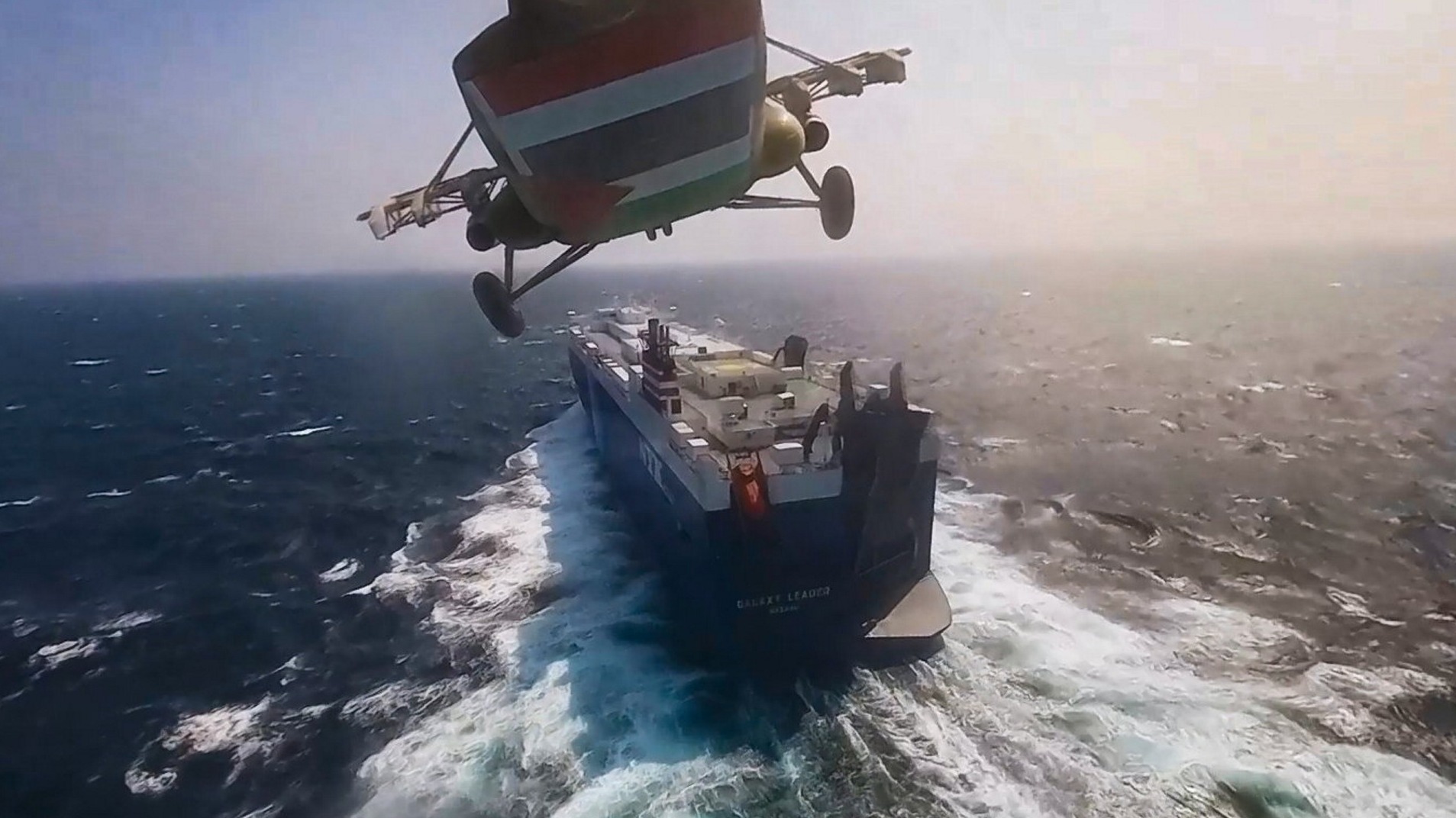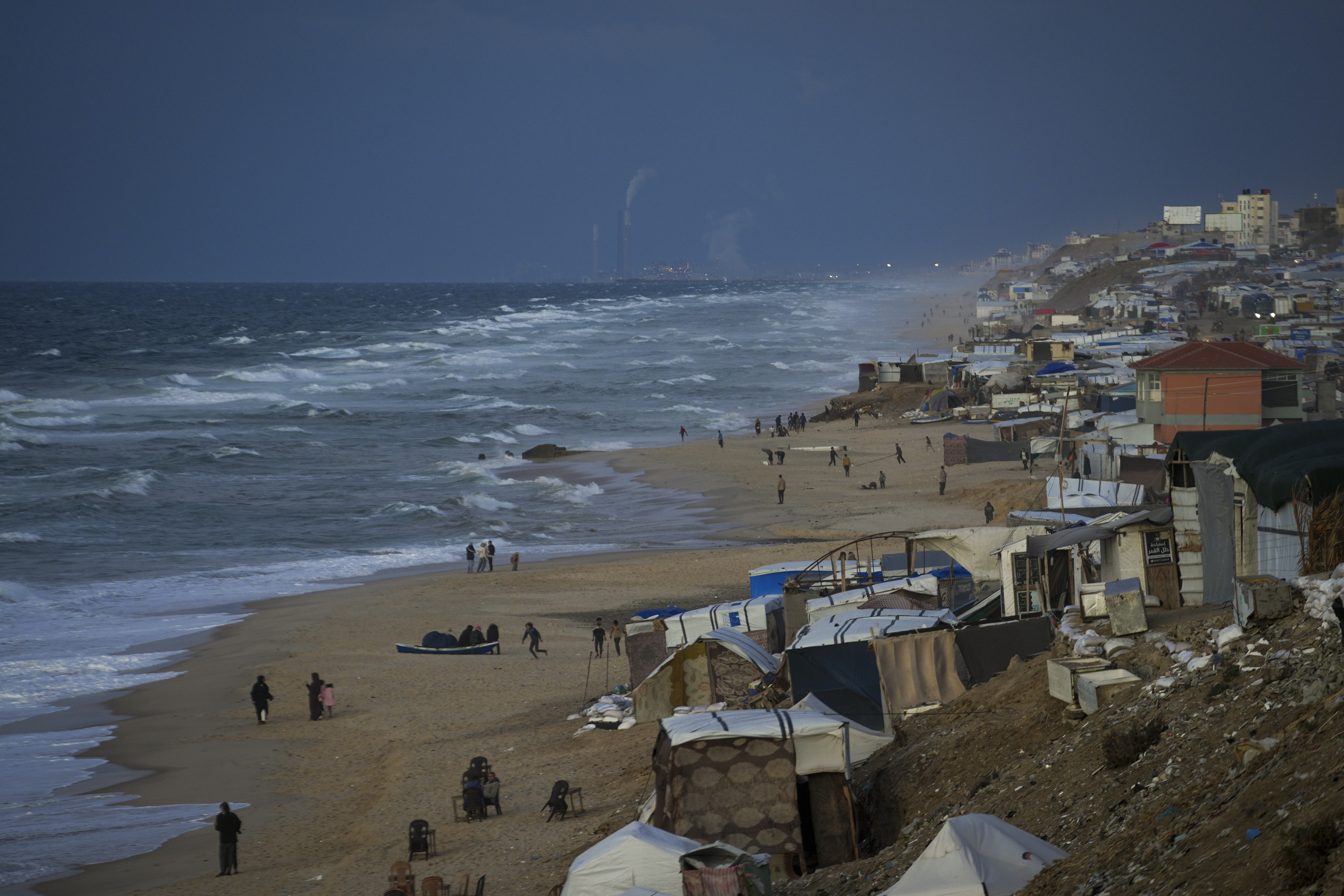U.S. considers striking Yemeni group

Pentagon deliberating on whether or not to strike directly at Houthi rebel targets in Yemen as a response to the Iranian-backed group’s increasing attacks against military and commercial ships in the Red Sea.
Biden administration officials have told Semafor that they are increasingly worried about the Houthis and their sponsors, Tehran, trying to undermine the global maritime trade. This is both to reduce trade to Israel, as well as to increase the costs for the U.S., its allies, and the Jewish state in Gaza’s 11-week conflict against the Palestinian militant Hamas. Some global shipping lines have already diverted their cargo traffic from the Red Sea to the Suez Canal, increasing transit times and costs.
Officials in the United States say they are weighing the pros and cons of a strike against Iran’s proxies, as well as a possible war with Iran. Biden administration officials repeatedly stated that their priority was to keep the Middle East conflict focused solely on Israel’s campaign against Hamas in Gaza. However, they have not ruled out more aggressive operations. In the last two months, Iranian-backed militias also launched dozens attacks against U.S. bases in Iraq or Syria.
As we have demonstrated in the previous, our military will not hesitate in taking action when we deem it appropriate and necessary. This includes protecting against actions in maritime domains that could threaten our soldiers,” Pentagon spokesman General Patrick Ryder stated in Washington this past week.
|
In recent weeks, the Pentagon has determined that U.S. forces and allies intercepted Houthi attack drones and missiles. After the October 7 attack by Israel, the Yemeni army has promised to support Hamas militarily. The Houthis are now targeting commercial ships, which they claim were headed towards Israeli ports.
The Houthis fired a cruise missile at a tanker flying the Norwegian flag, the Strinda. Last month, the Houthis seized and held captive a 25-person crew of a cargo vessel that was allegedly owned in part by an Israeli businessman. Yehia Sarreea, a Houthi spokesperson, told Yemeni TV this week that if Gaza doesn’t receive the food and medicines it needs, then all ships in Red Sea heading to Israeli ports will be targeted by our armed forces, regardless of nationality.
Since early October, the U.S. deployed two carrier-based strike groups in the Middle East. They have the capability to target Houthi radar and missile batteries inside Yemen. According to U.S. government officials, the Pentagon has remained silent due to fears of an escalation. Since 2016, the U.S. did not directly attack Houthi military bases in Yemen. Instead, the Pentagon used Tomahawk missiles to destroy one of their coastal radar stations in response against attacks on U.S. navy ships.
Pentagon’s discussions on the Houthis occur as U.S. officials try to increase the number of countries that are participating in a maritime alliance, called Combined Task Force 153. This coalition is tasked with policing Middle East’s major waterways and chokepoints, including the Straits of Hormuz, and Bab el-Mandeb strait.
Houthi attacks form part of an undeclared conflict that a number of former and current U.S. Defense officials have described as a war waged by Iran via its allies starting on October 7. It remains to be seen if the Biden Administration believes that Washington is in its best interest to respond.
Tehran has spent decades building a regional network of allied governments, militias and military proxies (known as the Axis of Resistance) to challenge U.S. military supremacy in the Persian Gulf theater and other Mideast theatres. Hezbollah, backed by Iran, has in the past attacked U.S. diplomatic and military compounds in Lebanon. With Tehran’s help, Iraqi militias mastered roadside bombs which killed hundreds of U.S. servicemen and Iraqi women after Saddam Hussein fell. The fallout of the Gaza war has allowed Iran to show off its full range of capabilities in the region.
This week, retired Lieutenant General Michael Nagata who supervised U.S. Special Operations Forces in the Middle East under the Obama administration said that there was “something close to an unofficial war” between Iran and the United States when it came to the attacks and reprisals outside of Israel. This is a very dangerous development. “I don’t believe there is any way to predict where this will go at this stage.”
Tehran has focused its efforts on increasing the military capability of its alliance in strategic waterways throughout the region. Since the 1979 Revolution in Tehran, the Islamic Republic developed missile, drone and naval capabilities that allow it to harass U.S. oil tankers and naval forces transiting the Persian Gulf. It has now essentially transferred these capabilities to the Houthis on the Red Sea.
The Strait of Hormuz, and Bab el-Mandeb strait are two of the most important choke points for global commerce. Former defense officials are of the opinion that the U.S. must strike the Houthis to maintain global commerce. “I don’t think we’re successful until we begin imposing costs on the Houthis,” retired Admiral John Miller who was in charge of U.S. Naval forces in the Mideast.
Title iconROOM FOR DISSENT
Nagata, along with a number current and former U.S. Defense officials, warned that the U.S. could face serious risks if it strikes against the Houthis or other Iranian allies. Tehran has built up assets in many Mideast nations, allowing them to retaliate on multiple fronts. “Is now the time to clip Iran’s wing or push it back strategically?” Nagata stated. “Our timing is terrible because, to my humble opinion, Iran has probably never been in a stronger strategic position since the Revolution.”
Iran’s Defense Minister warned the U.S., and its allies, against increasing their naval presence in both the Persian Gulf and Red Sea. He also warned them to not expand the activities of Task Force 153. Mohammad Reza Ashtiani, a spokesperson for Iranian state media said on Thursday that “nobody can move in a place where we are dominant”.
Title iconNOTABLE
Axios reported Thursday that the U.S. had sent messages to Houthis through third parties warning them against continuing attacks on the Red Sea.
Maersk, the German shipping giant, has suspended its Red Sea routes after two additional Houthi attacks.
“The Houthis are pursuing two objectives in their attacks, one domestic and the other international,” writes Yemen expert Gregory Johnsen. They “hope to offset the growing signs of discontent in Yemen by rallying Yemenis around a common enemy” as they write.









No Comments